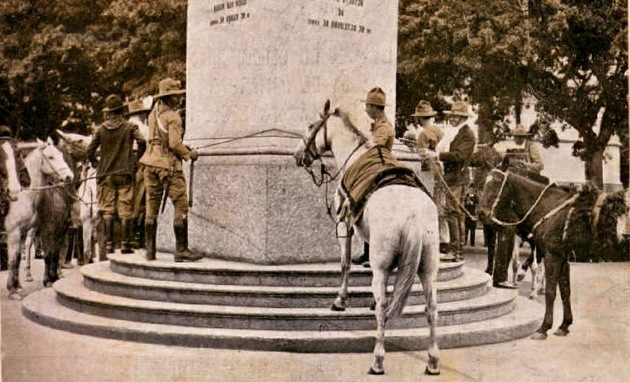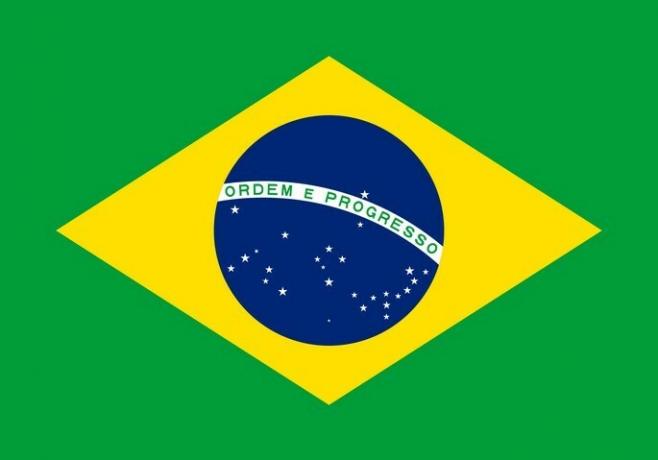THE Proclamation of the Republic it was a military coup that marked the end of Empire of Brazil and the beginning of Republic. It took place on November 15, 1889, executed by Marshal Deodoro da Fonseca.
Read too:September 7th – Independence of Brazil
Although it was led by the republican movement, with representatives such as Quintino Bocaiuva, Benjamin Constant, José do Patrocínio, among others, the Proclamation of the Republic represented, above all, the weakening of the monarchy. The crisis of the Empire was marked by three issues that shook the Empire's relationship with its main sources of political support: the religious issue, the abolitionist issue and the military issue.

empire crisis
THE crisis of the empire it concerns a series of transformations that have taken place in Brazil since the 17th century and that have led to the weakening of the monarchy, especially during the
second reign, causing the end of the Empire in Brazil and the beginning of the Republic, in 1889.It can be explained from a join of external factors and internal, that developed throughout the nineteenth century. Externally, three events were important for the weakening of absolutist monarchies in Europe: the glorious revolution (1688), the american revolution (1776) and the French Revolution (1789). In this context, the republican model emerged as an alternative, especially with the growing influence of the positivism (theoretical current inspired by the ideal of continuous progress of humanity) on the middle classes and intellectuals.
Internally, some "issues" are identified as decisive for the weakening of the monarchy and, consequently, the establishment of the Republic in 1889. the religious question, the abolitionist question and the military question.
→ Religious question
In 1864, Pope Pius IX ordered the excommunication of all Catholics involved in the masonry, an institution very influenced by the positivism and that it had many representatives in Brazil. Himself D. Pedro II, who although not effectively a Freemason, had a strong relationship with its members.
In response to the pope's determination, the emperor decreed that he did not recognize the effects of the papal order. However, in 1872, the bishops Dom Vital Maria, from Olinda, and Dom Macedo Costa, from Bethlehem, decided not to comply with the emperor's order, suspending religious brotherhoods that maintained contact with Freemasons.
The bishops ended up being punished with imprisonment and forced labor. In 1875, they were granted amnesty, but this episode was seen by the Catholic church in Brazil as an authoritarian act and, from then on, the institution began to distance itself from the emperor.
→ Slavery question
THE slavery in Brazil it was supported, above all, by the economic dependence that coffee elites had on this type of labor. However, during the Second Reign, internal and external pressures, mainly from England, demanded its end in favor of the implementation of the salaried labor.
The abolition of slavery was the result of a gradual and long process that, until reaching abolition itself, made some concessions through the abolitionist laws. However, these transformations generated discontent and criticism of the Empire by the elite that depended on slave labor.
Read too:Did abolition solve the problems experienced by black people in Brazil?
→ Military question
An important milestone for us to understand the military question concerns the armed conflict in which Brazil was involved: aParaguay War (1864-1870). Although Brazil won, the war brought a great loss among those who fought alongside the Brazilian Empire and also a great economic indebtedness with England, causing D. Pedro II, emperor at the time, suffered a strong political wear. At the same time, the military emerged as heroes for their efforts in the conflicts, which projected them politically into an already unstable environment.
THE crisis between the monarchy and the military it worsened in 1883, when a bill authored by the Visconde de Paranaguá started to force the contribution of the military to the Montepio (military welfare system), which provoked protests from Lieutenant Colonel Antônio de Sena Madureira, a friend of D. Pedro II, who then suffered a punishment.
This event triggered a series of clashes between the crown and the military through vehicles of press, at the same time that the republican movement was strengthened, highlighting personalities like Rui Barbosa, Quintino Bocaiuva, Benjamin Constant, between others.
Proclamation of the Republic
In 1889, Visconde de Ouro Preto was appointed Head of the Ministerial Cabinet, creating yet another series of impasses between critics of the monarchy and the military. When trying to increase the powers of the National Guard, which was founded in 1831 and had a closer proximity to the Empire, the attitude was seen by the military as an attempt to dissolve the Army.
Given this situation of discontent, Republicans saw the possibility of a military-backed coup. For this, they tried to convince the marshalDeodoro da Fonseca, a military man who had great prestige among the troops, to lead the movement. However, the marshal, in addition to claiming to be a monarchist, also claimed to be a personal friend of D. Peter II.

On November 14, 1889, the republicans would have circulated a news that the Visconde de Ouro Preto had decreed the arrest of Deodoro da Fonseca and one of the main leaders of the republicans, Lieutenant Colonel Benjamin Constant. This event was decisive for the marshal to start the movement that, the following day, ended up deposing the emperor, decreeing the end of the Empire and the beginning of the Republic.
Read too: Tiradentes Day: commemoration of this relevant national figure
Consequences
THE Proclamation of the Republic it produced a series of transformations, above all from an institutional point of view. One new constitution was enacted in 1891, inspired by the republican federal and liberal model of the United States of America. Since then, the former provinces, now states, have gained more autonomy, such as acquiring loans abroad and training their own military forces.
A system was also established. presidentialist, in which the head of the Executive would also be chosen by a direct and universal voting system – that is, the census vote, in which the citizen needed to prove a certain financial situation to be able to vote, was abolished. However, the illiterate, beggars, military enlisted men and, implicitly, women were prevented from voting.
The separation between the State and the Church was made official, being considered free the worship of all religious expressions, there is no longer an "official religion" in Brazil, as there was in the Constitution Imperial of 1824.
After the Proclamation of the Republic, a Provisional Government, which lasted until 1894. First, Deodoro da Fonseca was in power and, later, Marshal Floriano Peixoto. One constitutional republic it was fundamental for the republicans, as there was a fear that the military would permanently install itself in power. In 1894, the first civilian president of Brazil was elected, through the vote: Prudente de Morais.
Two political parties stood out in this period: the Republican Party of São Paulo (PRP) and the Republican Party of Minas Gerais (PRM). This period was known as Republic of Coffee with Milk, due to the strong influence of the agrarian elites in São Paulo and Minas Gerais in the alternation of power. These two parties alternated in power until the 1930 revolution, which started the It was Vargas.
Despite the importance of the act of Proclamation of the Republic, it is noteworthy that a series of transformations had already been taking place in Brazil since the beginning of the Empire, which, in the end, ended up resulting in the weakening of theonarchy and making room for the rsepublicans.
After the Proclamation of the Republic, the republicans distinguished themselves among "historic republicans", who since the beginning of the movement were ahead of their ideals, and "last-minute republicans", who only became republicans after the fall of the monarchy. Deodoro da Fonseca, for example, received several criticisms while at the head of the Provisional Government, for being a “last minute Republican”.
Summary
The Proclamation of the Republic resulted from external influences, such as the Glorious Revolution (1688), the Revolution Americana (1776), the French Revolution (1789), the independence of Spanish America, liberalism and the positivism;
There were also internal influences, such as the religious question, the abolitionist question and the military question;
There was the emergence of a republican movement from 1870 onwards and the gradual adhesion of the military, increasingly dissatisfied with the Empire;
The Proclamation of the Republic was a military coup supported and, to a large extent, led by the republicans.



